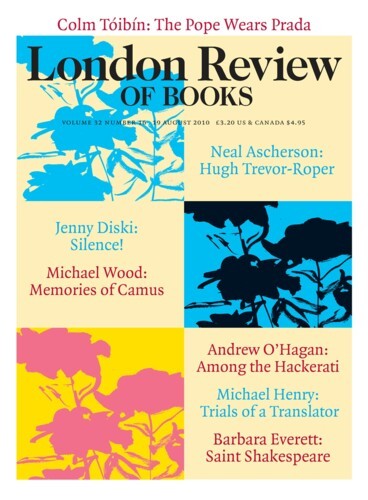The Mark
After that Etruscan she-wolf
tenting milk-fat twins, the grabby
cherubs added fairly awkwardly
around the time of Michelangelo,
we chance upon Marsyas, nearly dead.
Boxer’s nose. Cow’s lick. The arms tied
overhead standard white marble,
as is the face, the beard, the gallows;
a petrified tree with prettified leaves.
The torso though is pavonazzetto;
the thin pink veins of which evince
a body, stripped of its skin.
*
Books tell you the Dorian mode,
employed to worship Apollo,
found its expression on lyres –
which the Phrygian mode refused,
using instead music produced
by the reeds – flutes – cut from
the banks of the Marsyas river –
though the loss is not symbolic.
All pain’s non-fictional,
based on the true story of pain.
Nature is precise in this.
It hurts as much as it is worth.
*
Also Apollo, the racist, cheated,
and the narrative’s loaded by Greeks
who’d chosen the Dorian mode.
This is just the first triumph of the state,
and the death of a human flautist,
whose large head is tilted forwards
and whose face bears such a dread expression
it served Renaissance painters as a template
for their crucifixion scenes – forgetting
of course that Christ sides with Apollo,
with all good sons of awkward gods
intent on implementing father’s will.
*
You know the child thought the darkness
some stag that had its horns entangled
in the branches, and thrashed itself in
deeper to exhaustion and protracted death,
or someone from the town come
outside the walls to draw a tally-line
beneath accounts for good this time:
but then he recognised him by
his substantial beard, the solid build,
and when the rug of flies shook out
he understood that all the skin
had been tore from him by some animal.
*
And since it forecasts redressal, the grief
of Christ is inauthentic, dilute with
the largesse of the much better informed.
This is not. Marsyas had only dropped in
to sit by the fire and play like a dream,
the calloused fingers snaking pale darting
flames across the stops. But every tavern
hosts its own dog-killer and herd-god,
its bribe-swallower, its giver of luck –
and having got his pedigree,
having grasped the last injustice,
the mark was taken out the back and stiffed.
*
Having dared a god and lost,
having been flayed alive for his presumption,
the river so-called arose from his blood
and the tears of his brothers and sons –
who have no knife and only starlight.
The youngest climbs, unties the knots
and sets the corpse free. The awful stench.
We wrap him in the swaddle cloths
and lug him uphill to an olive grove
that someone knows, and stack rocks
around the body, and walk back
to a houseful of the vengeful and drunk.
Santa Maddelena
Cool air massing on the mountain
passes through the ruled bamboo
with whispers of Etruscan
archers underneath the window,
drawing arrows, creaking bows.
We are each other’s provocation,
and since noon no one has spoken.
Even to myself I seem like something
withstood, but it will be dark in ten,
and I’m glad the linden by the pool
yields in the breeze sufficiently,
and steadies, ordering its leaves
again to an unbroken canopy,
like the shields of legionaries.
Cabochon
The tall nurse broadcasting our secret
still has some cousins in Leitrim,
and bright eyes as bright as trinkets
when her pink nail taps the screen.
She taps at a smudged thumbprint
then a tiny diamond blip between its
cauda and the lowered head, a fillip
in the quadrant’s grain; and then again.
On Lexington we try to keep in time
with the intimate detail, commonplace
as any passengers arriving at the gate,
late, weighted down with uncut gems
stitched meticulously in the hems
of her summer dress, his borrowed case.
Send Letters To:
The Editor
London Review of Books,
28 Little Russell Street
London, WC1A 2HN
letters@lrb.co.uk
Please include name, address, and a telephone number.

